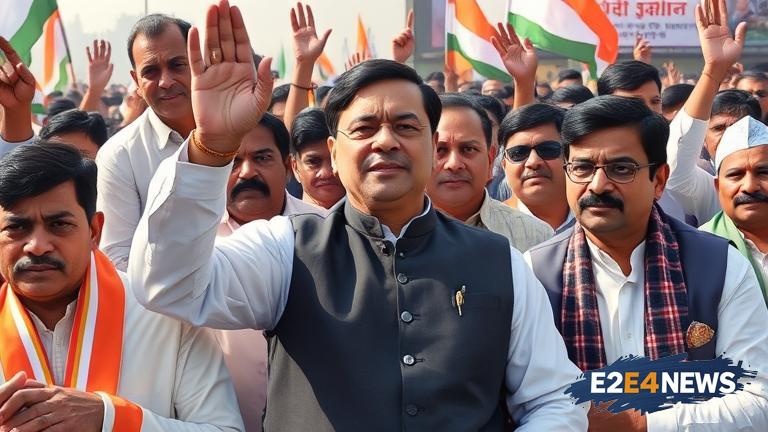The Indian political landscape has been abuzz with activity as leaders from the India bloc have rallied around Rahul Gandhi, a prominent figure in the country’s opposition, after the Supreme Court took issue with his recent remarks. The controversy began when Gandhi made certain statements that were deemed to be in contempt of court, prompting the Supreme Court to take notice. The court’s decision to pull Gandhi up has been met with widespread criticism from opposition leaders, who have come to his defense. They argue that the court’s actions are an attempt to stifle free speech and silence dissenting voices. The leaders have also questioned the timing of the court’s decision, suggesting that it may be politically motivated. Gandhi, who is a member of the Indian National Congress party, has been a vocal critic of the current government and its policies. His remarks, which were made during a public rally, were seen as a critique of the government’s handling of certain issues. The Supreme Court, however, took umbrage with Gandhi’s words, saying that they were in contempt of court. The court’s decision has sparked a heated debate in the country, with many arguing that it is an attack on free speech and the right to criticize the government. Opposition leaders have come out in force to defend Gandhi, saying that he has the right to express his opinions and that the court’s actions are an overreach of its authority. They have also accused the government of trying to silence Gandhi and other opposition leaders through the use of the courts. The controversy has highlighted the tensions between the government and the opposition in India, with many seeing it as a sign of a broader crackdown on dissent. The Indian National Congress party has released a statement defending Gandhi and criticizing the court’s decision. The party has said that Gandhi’s remarks were not intended to be in contempt of court and that the court’s actions are an attempt to intimidate opposition leaders. Other opposition parties have also come out in support of Gandhi, saying that they stand with him in his fight against the government. The controversy has also sparked a wider debate about the role of the courts in Indian politics. Many have argued that the courts should not be used as a tool to silence opposition leaders and that they should instead focus on upholding the law and protecting the rights of citizens. The government has responded to the criticism, saying that the courts are independent and that their decisions should be respected. However, opposition leaders have questioned the government’s commitment to the rule of law, saying that it is selective in its application. The controversy is likely to continue to simmer in the coming days, with many seeing it as a sign of a broader struggle for power and influence in Indian politics. As the debate rages on, one thing is clear: the Indian political landscape is likely to remain volatile and unpredictable in the coming months. The opposition leaders’ defense of Gandhi has been seen as a show of unity and strength, and it remains to be seen how the government will respond. The Supreme Court’s decision has also raised questions about the limits of free speech in India and the role of the courts in regulating political discourse. The controversy has sparked a wider conversation about the health of Indian democracy and the need for greater protections for free speech and dissent. In the end, the outcome of the controversy will depend on a variety of factors, including the actions of the government, the opposition, and the courts. One thing is certain, however: the Indian political landscape will continue to be shaped by the complex interplay of power, politics, and the law.





